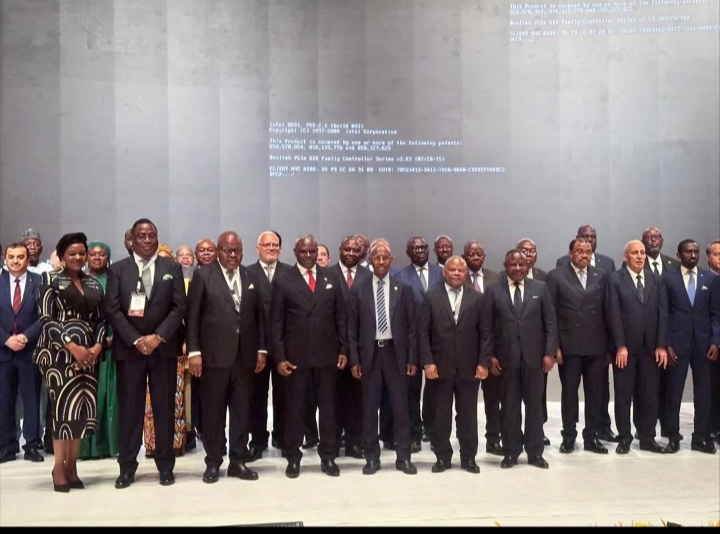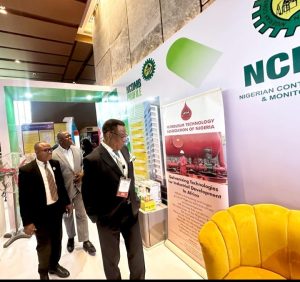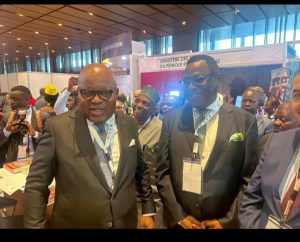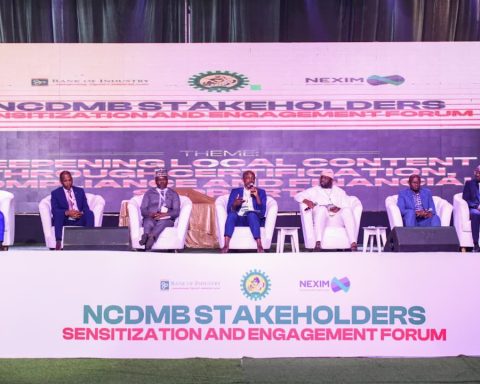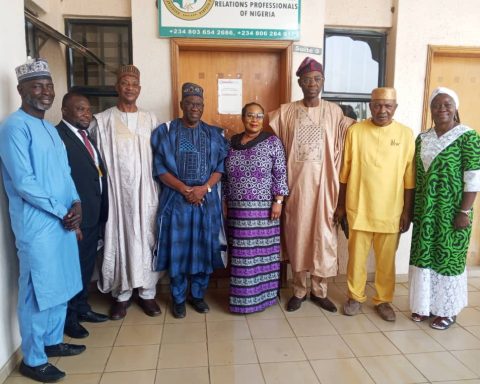Nigeria’s Executive Secretary of the Nigerian Content Development and Monitoring Board (NCDMB), Engr. Felix Omatsola Ogbe, says Africa risks losing billions in potential market value unless oil-producing nations hardwire local content policies into their energy strategies.
Speaking at the 4th African Petroleum Producers Organisation (APPO) Conference and Exhibition on Local Content in Brazzaville, Congo, Ogbe told investors, regulators and operators that Africa’s energy sector can only evolve into a competitive global market if more value is retained within the continent’s supply chains.
Africa holds more than 125 billion barrels of crude oil and 620 trillion cubic feet of gas, yet Ogbe warned that without structured local participation, most financial gains from exploration, production and servicing will continue to flow offshore.
Join our WhatsApp Channel“Local content is a development strategy,” he said. “It is about value retention, capacity growth, and positioning African companies to compete profitably in the global energy marketplace.”
Nigeria’s Local Content Model as a Commercial Case Study
Ogbe noted that Nigeria’s 15-year track record shows that structured policy implementation can stimulate domestic manufacturing, expand service capacity and deepen investor confidence. He pointed to successful outcomes such as:
- The multibillion-dollar Egina FPSO Integration Yard, the first in Africa
- NCDMB’s oil and gas parks in Bayelsa and Cross River
- Over 20,000 trained specialists, boosting the domestic technical labour pool
These infrastructures, he said, offer clear investment value for operators seeking regional integration hubs, component manufacturing sites and engineering partnerships.
READ ALSO : NCDMB Unveils Nationwide Scheme to Equip 10,000 Young Nigerians for Emerging Oil and Gas Jobs
NCDMB Launches New Compliance Certificate to Boost Transparency in Oil, Gas Funding
Push for African Energy Services Network
To improve project economics across African oil markets, Ogbe proposed establishing an African Energy Services Network, a platform to link fabrication, engineering, and manufacturing hubs across APPO countries.
The initiative, he explained, would lower operational costs, reduce project delivery timelines, boost competitiveness and attract cross-border capital.
African Energy Bank a Major Financing Lever
Ogbe welcomed the establishment of the African Energy Bank, describing it as a strategic financing vehicle capable of de-risking investments in upstream projects, modular refineries, gas processing, and local manufacturing.
He said NCDMB will provide technical backing and project linkages to help the bank attract sizeable investments, while urging stakeholders to mobilise capital aggressively.
New Opportunities for Cross-Border Partnerships
The NCDMB boss said Nigerian service companies are seeking joint ventures across Africa in key growth segments including:
- Marine services
- Engineering and fabrication
- Gas infrastructure
- Digital energy services
He added that rising interest from other African states in Nigeria’s local content framework underscores the commercial viability of its policy design and digital compliance systems, such as the NOGIC Joint Qualification System.
Nigeria’s Model Draws Continental Interest
During panel discussions at the conference, senior NCDMB officials showcased Nigeria’s business-facing local content strategies, drawing attention from countries exploring new cost-efficient and investor-friendly regulatory systems.
The Brazzaville conference continues as African stakeholders negotiate new frameworks aimed at retaining wealth from the continent’s multi-billion-dollar energy projects.
Amanze Chinonye is a Staff Correspondent at Prime Business Africa, a rising star in the literary world, weaving captivating stories that transport readers to the vibrant landscapes of Nigeria and the rest of Africa. With a unique voice that blends with the newspaper's tradition and style, Chinonye's writing is a masterful exploration of the human condition, delving into themes of identity, culture, and social justice. Through her words, Chinonye paints vivid portraits of everyday African life, from the bustling markets of Nigeria's Lagos to the quiet villages of South Africa's countryside . With a keen eye for detail and a deep understanding of the complexities of Nigerian society, Chinonye's writing is both a testament to the country's rich cultural heritage and a powerful call to action for a brighter future. As a writer, Chinonye is a true storyteller, using her dexterity to educate, inspire, and uplift readers around the world.


